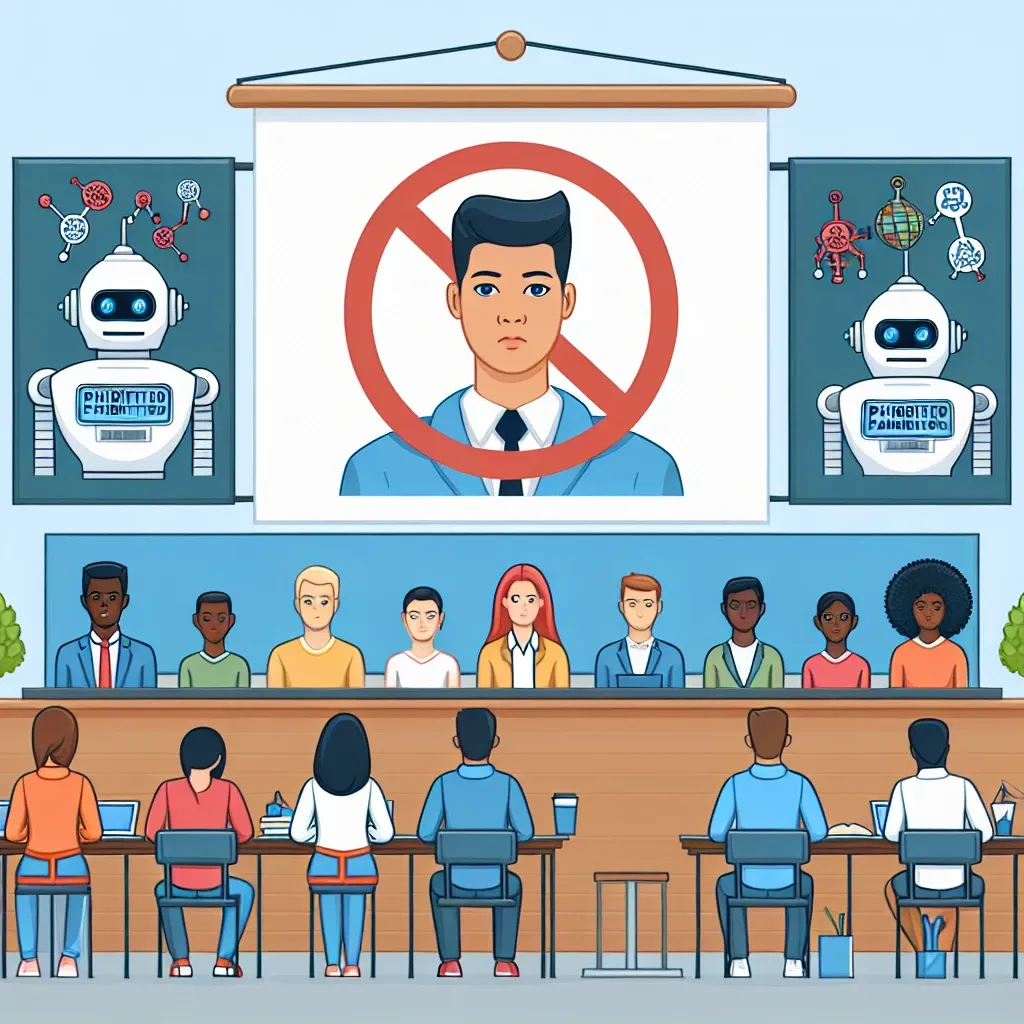Introduction
In recent years, the rapid advancement of technology has transformed the landscape of education, particularly in assessment methods. As many universities adopted AI proctoring systems in response to the challenges posed by remote learning during the pandemic, a growing concern over academic integrity and student privacy has emerged. This article explores the trend of universities banning AI proctoring and pivoting to oral exam assessments, examining the historical context, current practices, pros and cons, and the future of academic evaluations.
The Rise of AI Proctoring
Initially, AI proctoring systems were seen as a solution to combat cheating in online examinations. By utilizing webcam monitoring, biometric analysis, and advanced algorithms, these systems aimed to create a controlled environment for students taking assessments remotely. However, as these technologies became commonplace, several issues began to surface, prompting institutions to reconsider their use.
Concerns Over Privacy and Fairness
- Privacy Issues: Many students expressed discomfort over the invasive nature of AI proctoring, which often requires constant surveillance during exams.
- Bias and Inequity: Critics argued that AI systems could perpetuate biases in their assessments, disproportionately affecting marginalized students.
- Technical Glitches: Instances of technological failures leading to unfairly invalidated exams fueled further discontent among students and educators alike.
Historical Context
The shift away from AI proctoring is not entirely unprecedented. Historically, education has evolved through various methods of assessment, from oral examinations in ancient Greece to standardized tests in the 20th century. Each method has had its proponents and critics, often reflecting broader social and technological changes.
The Role of Oral Exams
Oral examinations have a long-standing tradition in many academic disciplines, particularly in fields such as law, medicine, and philosophy. These assessments allow for a deeper exploration of a student’s understanding, critical thinking, and communication skills. As universities reevaluate their assessment strategies, many are returning to oral exams as a viable alternative to AI proctoring.
Advantages of Oral Exam Assessments
- Holistic Evaluation: Oral exams provide a comprehensive view of a student’s knowledge, offering insights into their thought process, articulation, and ability to engage in discourse.
- Reduced Anxiety: For many students, oral exams can be less intimidating than traditional written exams, fostering a more conducive environment for demonstrating knowledge.
- Encouragement of Critical Thinking: The interactive nature of oral exams encourages students to think on their feet and articulate their ideas clearly, promoting skills essential for their future careers.
Challenges and Considerations
While the transition to oral exams presents numerous benefits, it also poses distinct challenges. Educators and institutions must navigate these hurdles to ensure effective implementation.
Logistical Concerns
Implementing oral exams requires careful planning and resources. Universities must consider the following:
- Scheduling: Coordinating times for students and faculty can be complex, especially in large classes.
- Assessment Guidelines: Clear criteria must be established to ensure fairness and consistency in evaluations.
- Training for Faculty: Instructors may need training to effectively conduct and assess oral examinations.
Student Preparedness
Not all students may feel equally prepared for oral assessments, particularly if they have grown accustomed to standardized testing formats. Institutions must provide resources and support to help students transition to this new evaluation style.
Case Studies: Universities Leading the Change
Several universities have already begun implementing oral examinations as part of their assessment strategies. Here, we highlight a few notable examples:
1. Harvard University
Harvard has opted to integrate oral assessments in key programs, particularly in the humanities and social sciences. Faculty members have reported increased student engagement and a greater understanding of the material.
2. Stanford University
Stanford has piloted oral exams in select STEM courses, finding that students were better able to explain complex concepts and demonstrate their knowledge through interactive dialogue.
3. University of Cambridge
Cambridge has a long-standing tradition of oral examinations, particularly within its graduate programs. Recent shifts have reinforced this practice, emphasizing its importance in fostering robust academic discourse.
The Future of Assessments
As universities continue to explore alternatives to AI proctoring, the future of assessments will likely involve a combination of traditional and innovative methods. Here are some trends to watch:
1. Hybrid Assessment Models
Institutions may adopt hybrid models, incorporating both oral and written assessments to provide a more balanced evaluation of student knowledge.
2. Technology-Enhanced Oral Exams
While moving away from AI proctoring, universities may still leverage technology to enhance oral exams, utilizing tools for recording and providing feedback, thereby improving the assessment process.
3. Ongoing Evaluation and Feedback
Continuous feedback from students and faculty will be critical in refining oral exam methodologies, ensuring they meet educational objectives and address any emerging concerns.
Conclusion
The shift from AI proctoring to oral exam assessments marks a significant turning point in academic evaluations. By prioritizing academic integrity, student privacy, and a more holistic understanding of knowledge, universities are paving the way for a more equitable and effective assessment landscape. As this trend continues to evolve, the collaboration between educators, students, and administrators will be essential in shaping the future of assessments in higher education.

